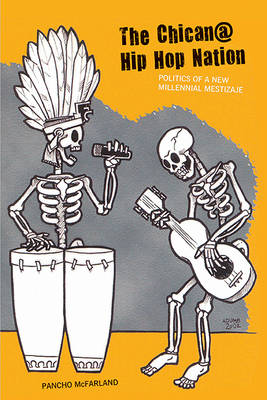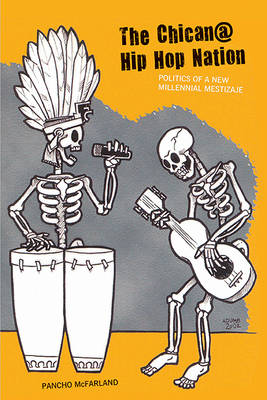
- Afhalen na 1 uur in een winkel met voorraad
- Gratis thuislevering in België vanaf € 30
- Ruim aanbod met 7 miljoen producten
- Afhalen na 1 uur in een winkel met voorraad
- Gratis thuislevering in België vanaf € 30
- Ruim aanbod met 7 miljoen producten
Zoeken
€ 67,95
+ 135 punten
Omschrijving
The population of Mexican-origin peoples in the United States is a diverse one, as reflected by age, class, gender, sexuality, and religion. Far from antiquated concepts of mestizaje, recent scholarship has shown that Mexican@/Chican@ culture is a mixture of indigenous, African, and Spanish and other European peoples and cultures. No one reflects this rich blend of cultures better than Chican@ rappers, whose lyrics and iconography can help to deepen our understanding of what it means to be Chican@ or Mexican@ today. While some identify as Mexican mestizos, others identify as indigenous people or base their identities on their class and racial/ethnic makeup. No less significant is the intimate level of contact between Chican@s and black Americans. Via a firm theoretical foundation, Pancho McFarland explores the language and ethos of Chican@/Mexican@ hip hop and sheds new light on three distinct identities reflected in the music: indigenous/Mexica, Mexican nationalist/immigrant, and street hopper. With particular attention to the intersection of black and Chicano cultures, the author places exciting recent developments in music forms within the context of progressive social change, social justice, identity, and a new transnational, polycultural America.
Specificaties
Betrokkenen
- Auteur(s):
- Uitgeverij:
Inhoud
- Aantal bladzijden:
- 310
- Taal:
- Engels
- Reeks:
Eigenschappen
- Productcode (EAN):
- 9781611860863
- Verschijningsdatum:
- 1/11/2013
- Uitvoering:
- Paperback
- Formaat:
- Trade paperback (VS)
- Afmetingen:
- 152 mm x 229 mm
- Gewicht:
- 517 g

Alleen bij Standaard Boekhandel
+ 135 punten op je klantenkaart van Standaard Boekhandel
Beoordelingen
We publiceren alleen reviews die voldoen aan de voorwaarden voor reviews. Bekijk onze voorwaarden voor reviews.








